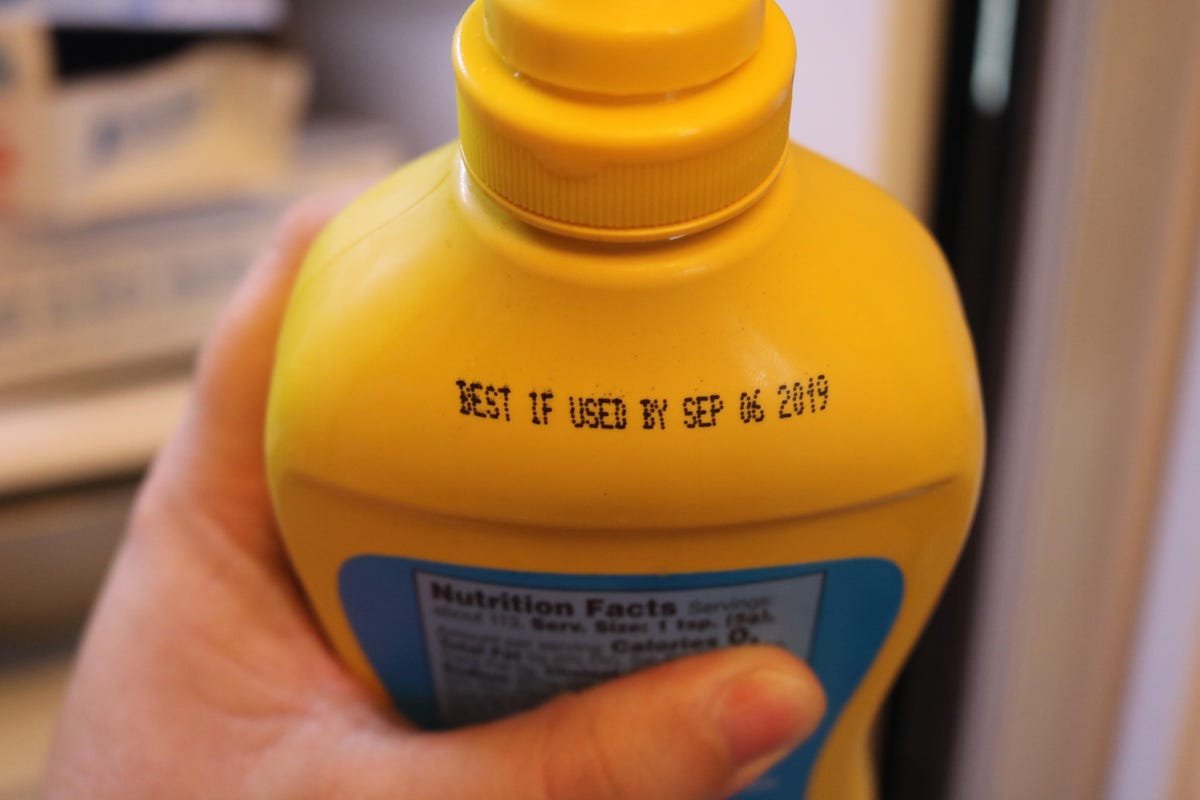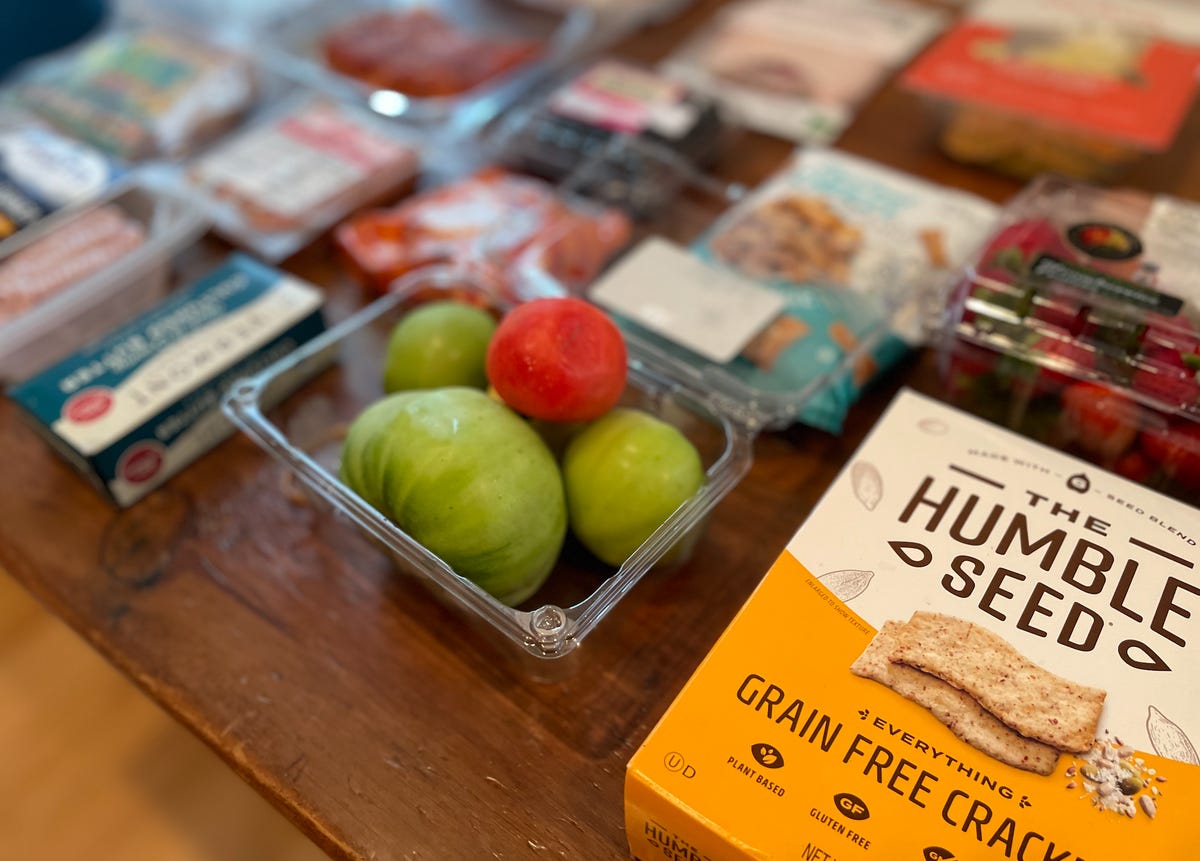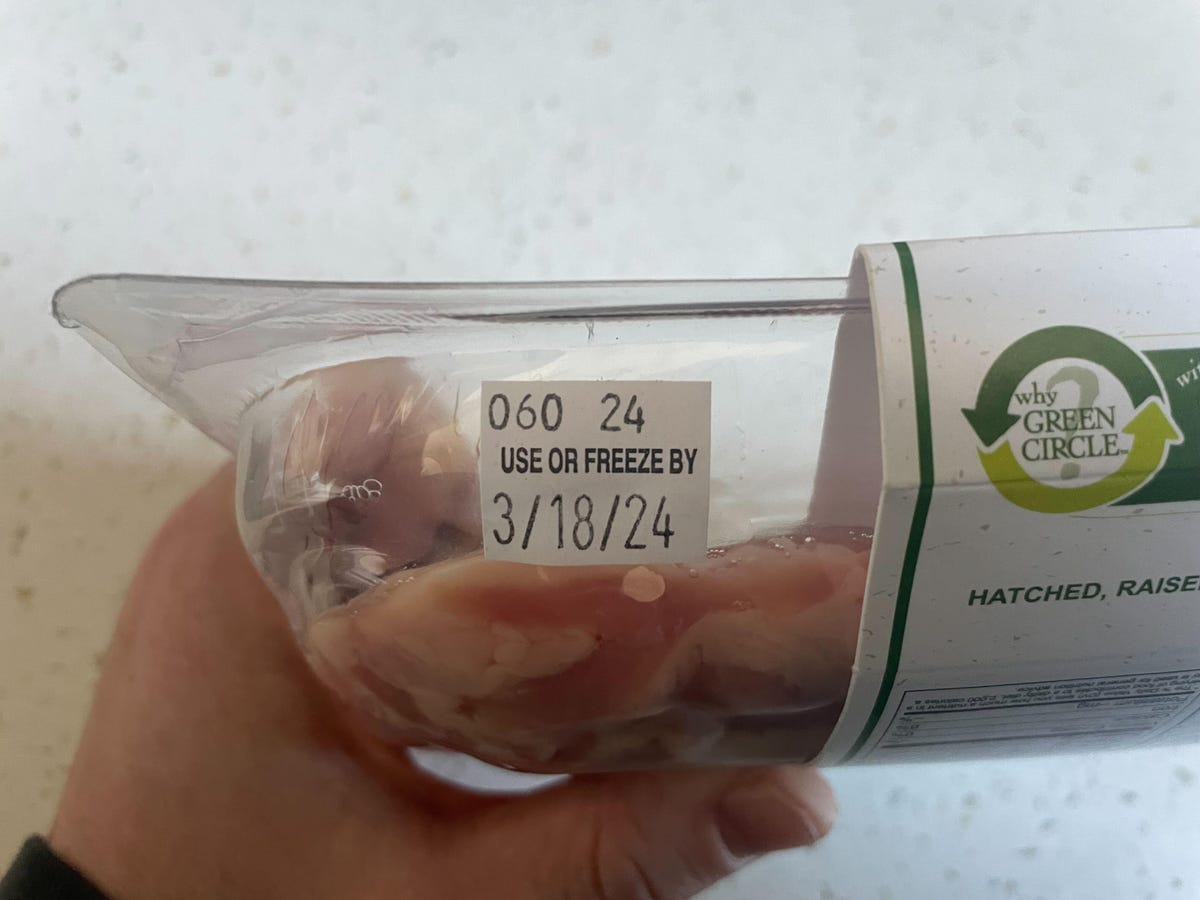
An expiration date can be a source of stress, and that stress may be causing you to throw away perfectly edible food. Expiration dates are typically on the safe side, meaning your food isn’t spoiled just because the date has come and gone.
While you shouldn’t push the limits too far, on balance, we’re all tossing out more food than we should be, and it’s all leading to increased food scarcity and rising costs.
If you want to prevent food waste — and keep more dollars in your pockets — you’ll want to better understand what these food expiration dates actually mean.
“I’ve seen statistics showing that consumers throw away up to $1,300 per year,” says Christopher Greco, CEO of Storewise, a software platform for independent grocers who I spoke with about food expiration. In fact, Americans produce 325 pounds of food waste per person, per year. Much of that food waste can be blamed on tossing away food that may still be safe for consumption, but whose printed expiration date has passed.
Who decides food expiration dates?

Once the packaging seal is broken, best-by and expiration dates no longer apply.
“Expiration dates are an issue of both quality and safety,” Greco says. On the one hand, producers and manufacturers want you to experience their products in the best possible condition for flavor and texture, and on the other, they want to mitigate the risk of any possible food-borne illnesses.
Read more: How to Store and Preserve Fresh Herbs
Some products, like dairy products, have relatively short shelf lives, and expiration dates that are swiftly approaching when you bring them home from the store. Others, such as canned and preserved products, can stay on store shelves or in your pantry or fridge for quite some time, maybe even years.
There’s much nuance around food expiration

If the best-by date is several years ago, you’d be wise to send it packing.
There’s a lot of nuance both in terms of quality and safety, respective to the expiration date, especially for those products that are less shelf stable in nature.
Greco walks us through a variety of scenarios given a common household product with a near-future expiration date, milk, where both storage and transportation variables can have an impact on its state, even after the expiration date has already been printed on the package. “You could have a different profile if that milk was dropped at the grocery store by the distributor, and it sat in the back unrefrigerated for even 20 or 30 minutes before it was put away,” he says. “If you bought that milk in South Florida, where it’s 100 degrees, and you drove 30 minutes home, that would have an impact on the quality as well.”
Best-by, use-by, sell-by and freeze-by dates

You’ll typically find the expiration dates for cans on the bottom side.
Expiration dates may also be printed with different verbiage, which creates different considerations and may speak more to issues of quality rather than safety. According to the US Department of Agriculture’s Food Safety and Inspection Service, these are the meanings behind the various labels:
- A “Best if Used By/Before” date indicates when a product will be of the best flavor or quality. It is not a purchase or safety date.
- A “Sell-By” date tells the store how long to display the product for sale for inventory management. It is not a safety date.
- A “Use-By” date is the last date recommended for the use of the product while at peak quality. It is not a safety date (except for when used on infant formula.)
- A “Freeze-By” date indicates when a product should be frozen to maintain peak quality. It is not a purchase or safety date.

Several factors contribute to how long food stays safe to eat including storage, packaging and environment.
These phrases can be helpful guidelines for the consumer, but it is important to note that besides the case of infant formula, expiration dates are not required by federal law. As indicated above, none of these refer to a matter of safety where consumption is concerned. They might even confuse some consumers into believing that their food has gone to waste, even when it hasn’t.
In short, you’re going to have to rely on your senses either way, including common sense, to determine whether food is safe to consume.
Using common sense

Some foods take longer than you’d think to expire but others expire faster. OIive oil, for instance, does not stay fresh for more than a few months after opening.
“I think that a lot of consumers have a hard and fast rule when it comes to expiration dates, thinking that if it’s now the 28th or 29th, and something expired on the 27th, then they must throw it away,” says Greco, but that isn’t always, or even usually the case. “You should at least smell it, and maybe taste it, and it might still be good.”
On the other hand, it’s an important habit to get into anyway, since even before the expiration date has passed you might have a suspicion that something has turned. Given a variety of transportation and storage scenarios, the expiration date can become meaningless, and as noted above, isn’t reflective of any federal regulation.
Even the USDA recommends this course of action: “The quality of perishable products may deteriorate after the date passes; however, such products should still be safe if handled properly. Consumers must evaluate the quality of the product prior to its consumption to determine if the product shows signs of spoilage.” You can handle foods properly by putting them away as soon as you get home, knowing where the coldest zones in your fridge are, keeping different types of foods separated, using appropriate storage containers, and not overfilling them to start.

I bought this chicken on March 11, but the sell-by date wasn’t for another week.
Read more: Chicken Labels Are Confusing. Here’s What They Do (and Don’t) Mean
Some items are very obviously spoiled, when they exhibit signs of mold or decay, or when the smell becomes off-putting. (Even if it exhibits some mold, you probably don’t need to throw your cheese away.) Items that have a natural preservative quality, such as cheese, pickled products or those with a high vinegar content, or other preserved products such as jam, are much more likely to become unpalatable to you or bland in flavor before they become unsafe.
In-person shopping helps with expiration dates and food waste

Expired meat and seafood are more likely to cause problems than most other groceries.
Greco notes that our shopping habits also play a role in terms of potentially throwing away unspoiled food. “Part of what also contributes to food waste is the lack of frequency in in-store shopping,” he says. While bulk buying can help save money on some products, trying to menu plan or stock up for weeks or months at a time, rather than just a few days, tends to result in having too much food on hand that may be hard to use before it actually starts to turn, regardless of its expiration date.
If you’re someone who still feels compelled to toss items out of an excess of caution based on the expiration date, visiting your local grocer more often can help you better keep groceries in your fridge, and money in your account.
If you know you’re dealing with expired food — moldy, stale, discolored or curdled — you can always use a countertop composter to keep organic waste out of the dump. But before you decide to trash it, brush up some skills to help discern when food is and isn’t expired so you don’t discard perfectly good eats.
FAQs
What are the different dates on a food product for?
The best-by, use-by, sell-by and freeze-by dates are important markers to indicate peak quality or manage inventory, and consumers still gain a lot of value from them being printed on a product. But none of these dates indicate food spoilage, and it’s up to your common sense to decide when to throw something out.
Is a product always good past its expiration date?
No. While it’s worth testing each food product you own before tossing it out to prevent food waste, a product isn’t always good past its expiration date. In fact, a food item may still go bad even before the listed date on the container. Ultimately, it’s up to your common sense to decide whether a given food product is edible or if it should go in the garbage.